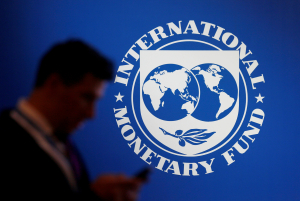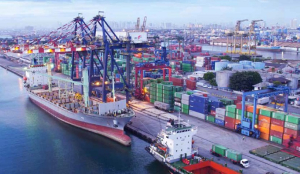Government's trade strategy in the spotlight as current account deficit may widen
The International Monetary Fund (IMF) has projected that Indonesia's current account deficit will widen to 1.5 percent of Gross Domestic Product (GDP) in 2025 and increase to 1.6 percent in 2026, signaling a weakening trend in the country's external resilience amid the government's strategy of increasing imports from the United States in order to ease President Donald Trump's trade tariffs.
This widening deficit is significant when compared to the realization of the current account deficit in 2024 which was recorded at US$8.85 billion or 0.6 percent of GDP. In fact, in 2023, the deficit was recorded at only US$2.04 billion (0.1 percent of GDP).
The current account balance itself reflects the outflow and inflow of foreign exchange from trade in goods and services, income, and current transfers. When the deficit widens, it indicates that funds flowing out of the country to finance economic activities are greater than those coming in, and also weakens a country's external position. This condition is mainly influenced by the high tariff policy imposed by U.S. President Donald Trump since April 2, 2025.
Responding to this policy, Director of the IMF Research Department Pierre-Oliver Gourinchas said that Trump's move risks triggering global trade disruption. "This tariff policy can disrupt supply chains, suppress productivity, and increase price pressures, even for the US itself," Gourinchas said as quoted in a statement.
Indonesia's move to increase imports from the U.S. to ease tariff pressures is considered a strategic response by the government. However, this actually raises concerns that it will worsen the current account deficit in the short term.
On the other hand, the IMF also cut its projection for Indonesia's economic growth to only 4.7 percent in 2025 and 2026, down from the previous projection of 5.1 percent. If this projection is realized, Indonesia's economic growth will be the lowest since 2021, when it only reached 3.69 percent.
This unfavorable global condition is also expected to have an impact on the labor market. The IMF estimates that the unemployment rate in Indonesia will increase to 5 percent in 2025 and 5.1 percent in 2026, compared to 4.9 percent in 2024.
Indonesia's trade surplus with the U.S. itself in 2024 reached US$6.84 billion, only from the goods sector. However, with pressure from U.S. trade policies, this trade performance has the potential to be disrupted. In the January-February 2025 period, Indonesia recorded a trade surplus of US$6.59 billion. This figure has increased significantly compared to the same period in the previous year, which recorded a surplus of US$2.83 billion.
Overall, the widening of Indonesia's current account deficit did not occur alone. Developed countries in Asia such as Japan, South Korea, and Australia, as well as developing countries such as India, Thailand, and Vietnam, are also projected to experience similar pressures. However, for Indonesia, future policy steps will be crucial in maintaining external stability and sustainable economic growth.
Deputy Minister of Trade Dyah Roro Esti Widya Putri said that increasing geopolitical tensions, global demographic changes, supply chain disruptions, and fluctuations in food and energy prices could create uncertainty in the flow of international trade. However, she emphasized that Indonesia has a great opportunity to strengthen the national economy amidst these global dynamics.
"Indonesia's potential is very large as the world's largest nickel producer, the third largest tin producer, and the owner of the world's sixth largest bauxite reserves," Roro said as quoted in a statement on Tuesday, April 22, 2025.
Roro emphasized that Indonesia will continue to carry out its strategic position as a non-aligned country and open up space for dialogue with all parties in order to find mutually beneficial solutions.
"We will synergize with related countries to find the best way out. And we should be grateful that in the midst of the current global conditions, Indonesia's economic foundation remains stable and strong," she said.
Already have an account? Sign In
-
Start reading
Freemium
-
Monthly Subscription
30% OFF$26.03
$37.19/MonthCancel anytime
This offer is open to all new subscribers!
Subscribe now -
Yearly Subscription
33% OFF$228.13
$340.5/YearCancel anytime
This offer is open to all new subscribers!
Subscribe now






